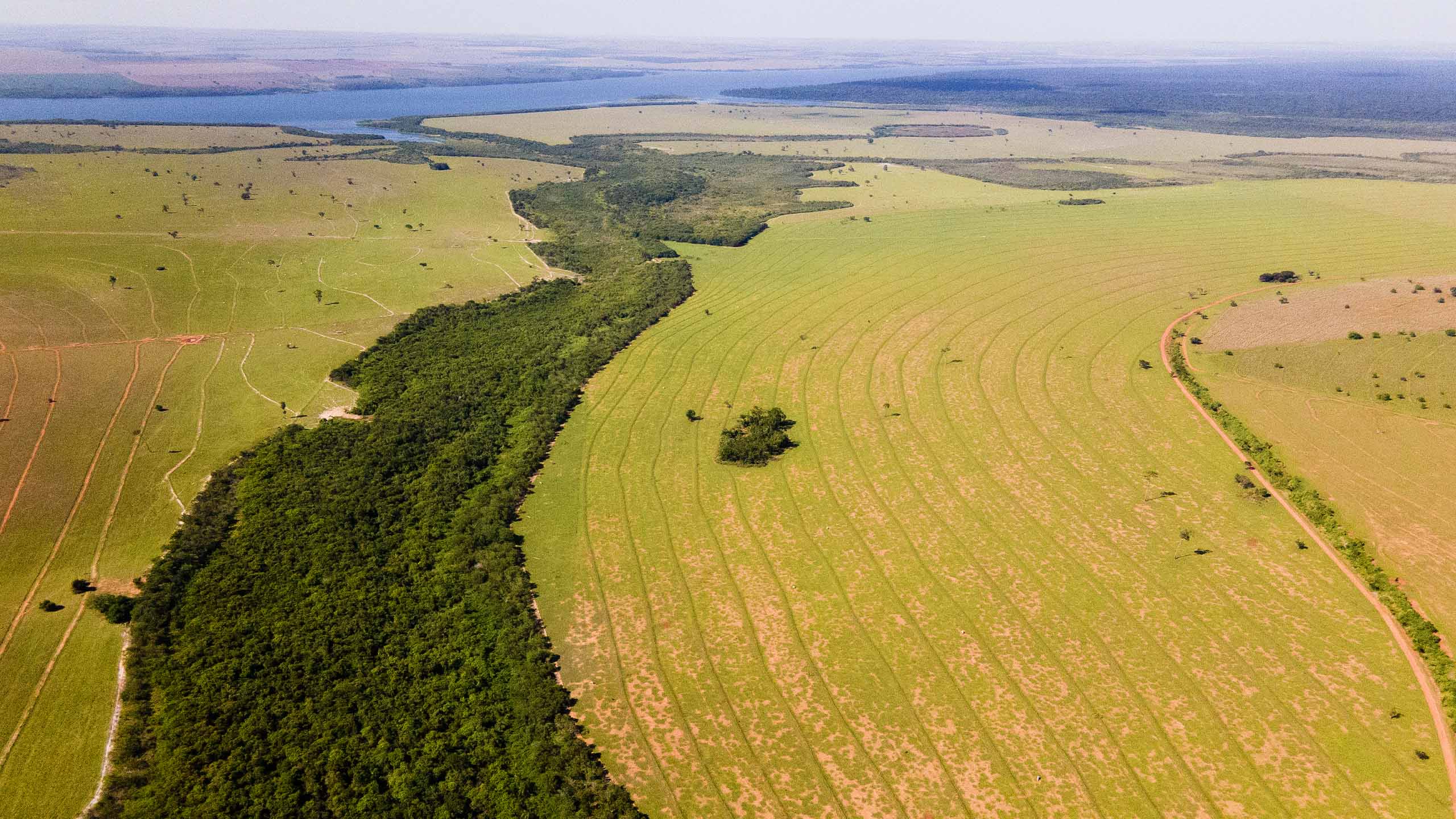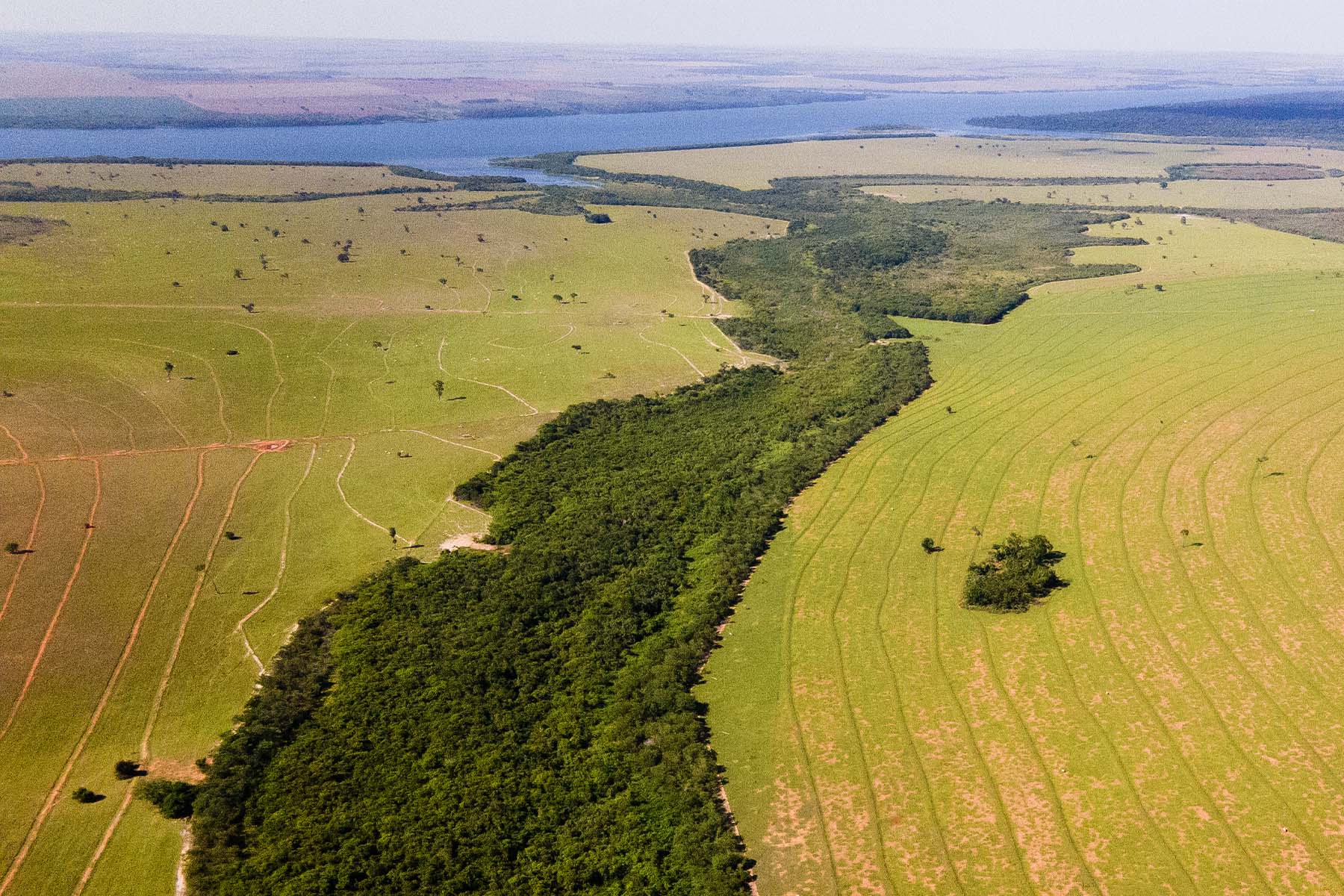Reforestation In
Brazil
From the Amazon Rainforest to the Atlantic Forest, the Cerrado savanna, the Caatinga desert scrubland, the Pampas plain and the Pantanal wetlands, Brazil’s landscape is a mosaic of six unique biomes. The most biologically diverse country in the world, it’s home to iconic species such as jaguars, sloths, amazon river dolphins, and capybaras.
Brazil’s forests are profoundly threatened by a combination of factors, including deforestation, urban expansion, harvesting and poaching, and natural disasters. Over the past 40 years, 17% of the Amazon has been lost to deforestation and climate change. Further south, just 12% of the Atlantic Forest remains. As two of the most biodiverse ecosystems on earth, this loss has profound implications for the conservation of global biodiversity.

Brazil Stats
15-20%
GLOBAL BIODIVERSITY
Brazil hosts 15-20% of the world’s biodiversity.
Megadiverse Brazil: giving biodiversity an online boost, UN Environment Program
300
TREE SPECIES
One hectare of Amazonian forest may contain 300 or more tree species.
Amazonian ecosystems and their ecological functions, The Amazon We Want, Science Panel for the Amazon
700
NEW SPECIES
An average of 700 new species are discovered every year in Brazil.
Megadiverse Brazil: giving biodiversity an online boost, UN Environment Program
200+
INDIGENOUS PEOPLES
More than 200 indigenous peoples call Brazil home.
Brazil - Country Profile, Convention on Biological Diversity
450
TREE SPECIES
One hectare of the Atlantic Forest can support 450 tree species.
How Indigenous People Are Restoring Brazil’s Atlantic Forest, Yale Environment 360
Project Highlights
Reforestation in Brazil can restore critical wildlife habitat, establish biodiversity corridors, engage local communities in restoration work, establish sustainable agroforestry systems, and more. Learn about three projects that plant trees in Brazil!

Corridors for Life
This community-based project aims to create the largest ecological corridor in the Atlantic Forest by planting native species and protecting forests in Key Biodiversity Areas. Trees are grown in local nurseries and planted by local communities. Connecting forest fragments by increasing tree density and diversity fosters critical habitat for endangered species such as the jaguar and the black lion tamarin. These corridors will support genetic diversity and overall ecosystem health.
Make the Forest Flourish
This project aims to restore 150 hectares of deforested land in Acre, Brazil by engaging 150 marginalized families in planting 300,000 seedlings using Agroforestry Systems (SAF). This initiative not only improves ecosystem health by reforesting key areas such as riverbanks and springs, it boosts food security and generates income for participating families through the production of fruits and seeds for local markets and institutional programs like the National School Feeding Program.


Mogi Guaçu Watershed Restoration
Led by a women-centered organization, this project is dedicated to restoring 200 hectares of the Atlantic Forest across the Camanducaia and Peixe River Basins in Minas Gerais and São Paulo states. By planting trees around key water springs, the project supports watershed health while also strengthening rural communities. Local landowners are actively involved and trained in restoration practices, especially in tree maintenance, fostering both employment opportunities and a strong sense of environmental stewardship.


